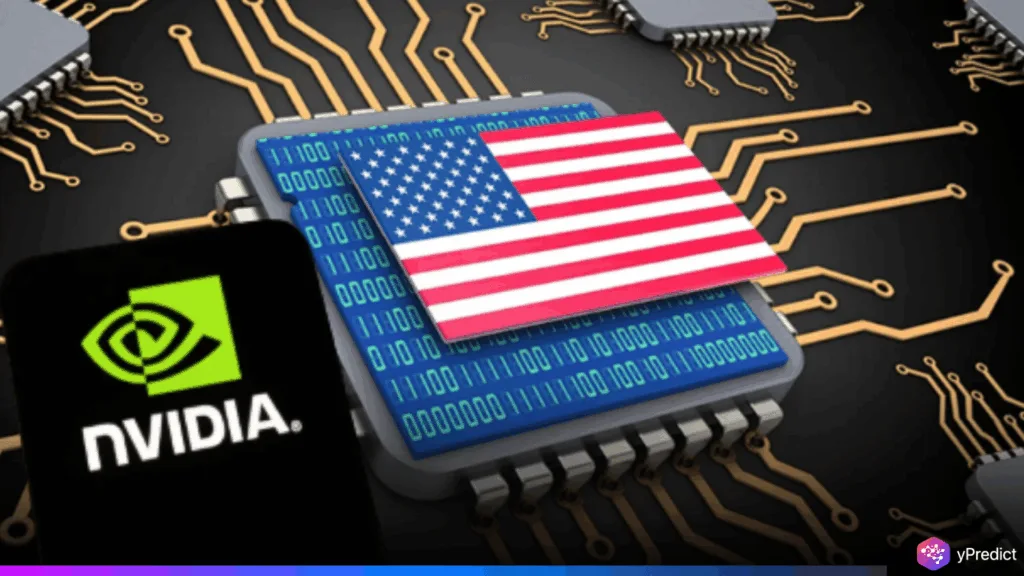
Nvidia has reported a massive financial blow in its Q1 fiscal year 2026 due to AI chip export licensing restrictions. These U.S. regulations, implemented during the Trump administration, prevent Nvidia from selling its H20 AI chips to China. Additionally, the difficulties are anticipated to worsen; Nvidia predicts an $8 billion loss in Q2.
Jensen Huang, the chief executive officer (CEO) of Nvidia, voiced worries about missing out on the $50 billion in the Chinese market, which is crucial for global leadership in AI.
How Did AI Chip Export Rules Impact Nvidia?
Nvidia confirmed that the new U.S. licensing rules blocked over $7 billion in H20 chip revenue for Q1 alone. The ban targets the company’s Hopper-based data center chips, including the H20, which are pivotal in AI computing. The AI chip export rules also disrupted its Chinese operations, which had been a key growth area.
The U.S. efforts to prevent foreign powers from accessing AI technology are a key factor in these successes. Nvidia, known for innovation in GPU and AI systems, has been forced to abandon a large inventory of H20 chips meant for Chinese clients. Additionally, the Chinese market is now mainly closed to the company, which hurts Nvidia’s overall earnings.
Why Are Nvidia’s Earnings Falling So Fast?
Despite early warnings in April, the reality of the restrictions hit harder than expected. Nvidia anticipated a $5.5 billion impact but ended Q1 with a $4.5 billion write-down and $2.5 billion in unfulfilled shipments. Furthermore, the upcoming quarter is projected to lose $8 billion out of a projected revenue of $45 billion.
Huang restated on the earnings call that there is no practical way to lower chip capabilities to comply with the current export regulations. The company’s flagship Hopper platform can no longer serve China’s data center market. Additionally, these changes are forcing Nvidia to come up with new plans in a vital international market.
The Biden administration abandoned a proposed AI Diffusion Rule that would have placed more stringent limitations. Although Huang applauded this action, he stressed that the export policy for AI chips has already caused significant harm.
AI Chip Export Ban Blocks Global Dominance
The loss of the Chinese market is not just about short-term revenue. According to Huang, half of the world’s AI researchers are from China. As a result of the Hopper business’s failure in China, Nvidia is losing both sales and influence.
Nvidia remains vocal against the U.S. government’s restrictive approach. The company argues that locking out American firms from China only strengthens local competitors. In addition, Huang cautioned that this might erode America’s technological leadership in chips and AI. Despite the current setback, Nvidia is exploring ways to re-enter the Chinese market. Thus, the company wants to recover from the fallout from the AI chip export and safeguard future Nvidia profits.
What’s Next for Nvidia in China?
The AI chip export ban has severely impacted Nvidia’s business and prospects in one of the most significant AI markets. While U.S. policies aim to protect national interests, they have also restricted a key American innovator from competing globally. Since the Chinese market is currently mostly closed, Nvidia needs to stay ahead of the competition. It will be achievable through innovation in both its policy approach and its products. Although China already has AI, Huang pointed out that the true question is whether American businesses will contribute to the development of that technology.






